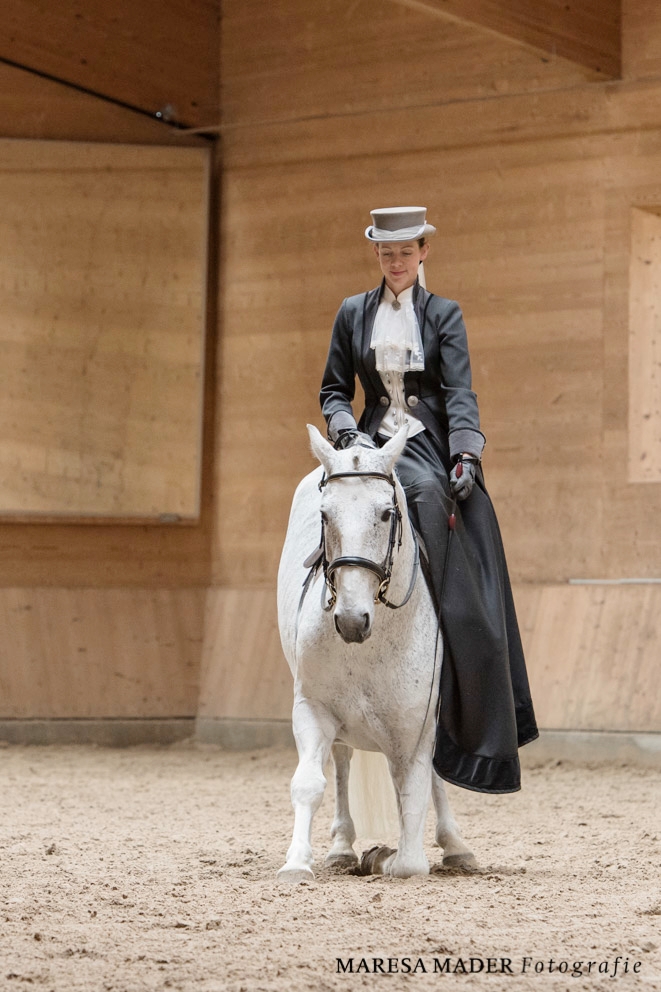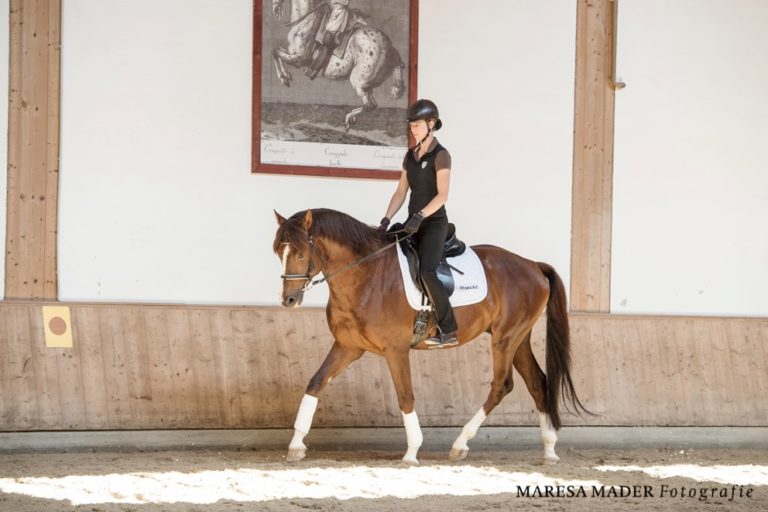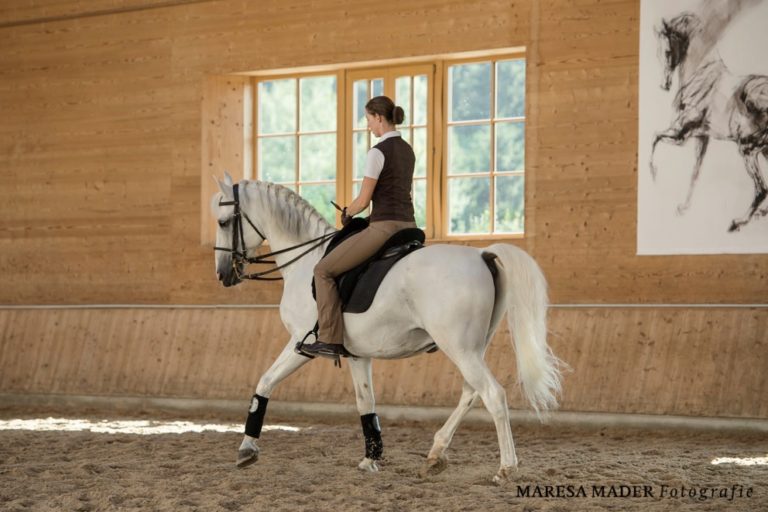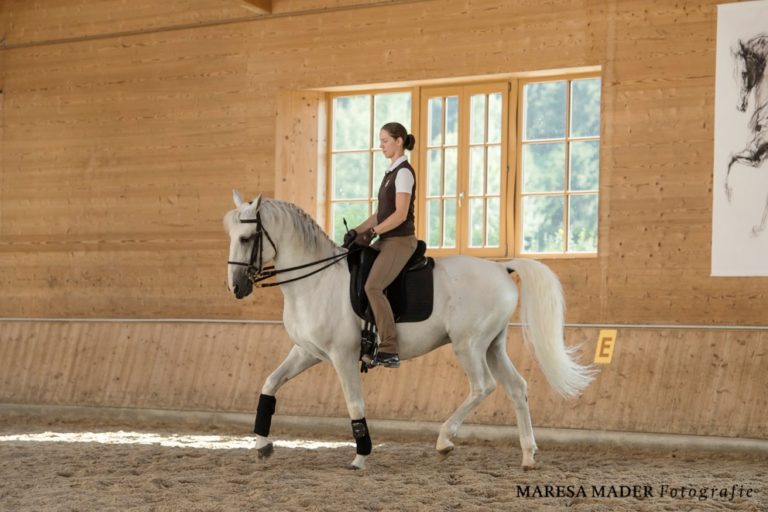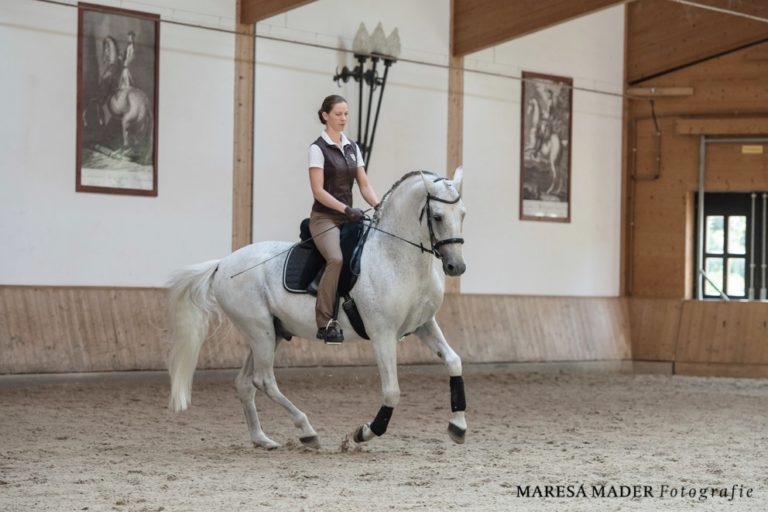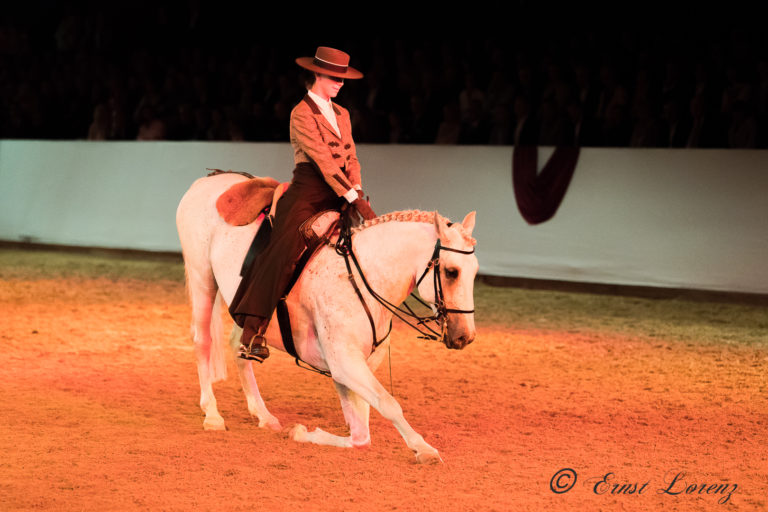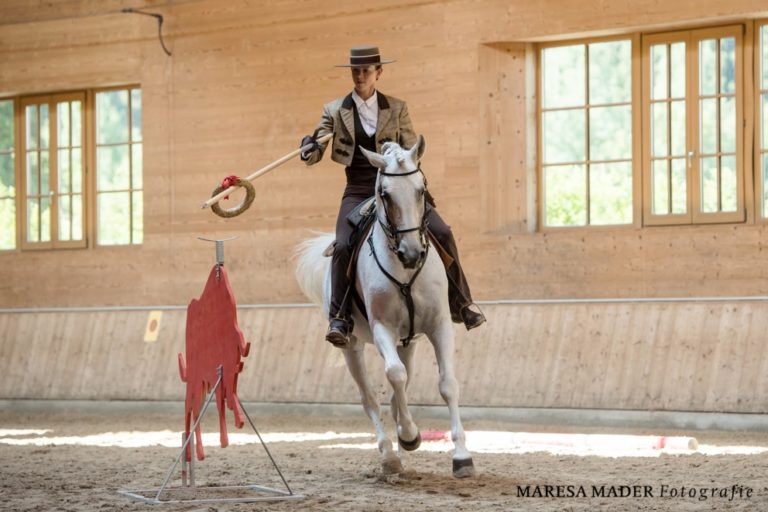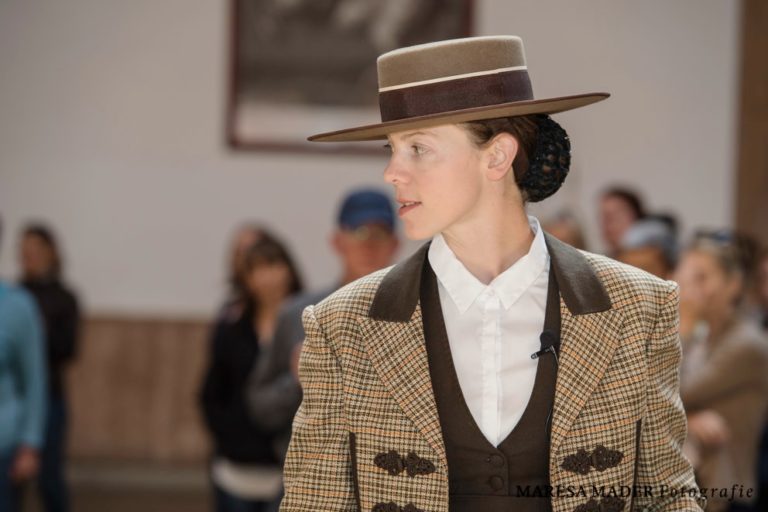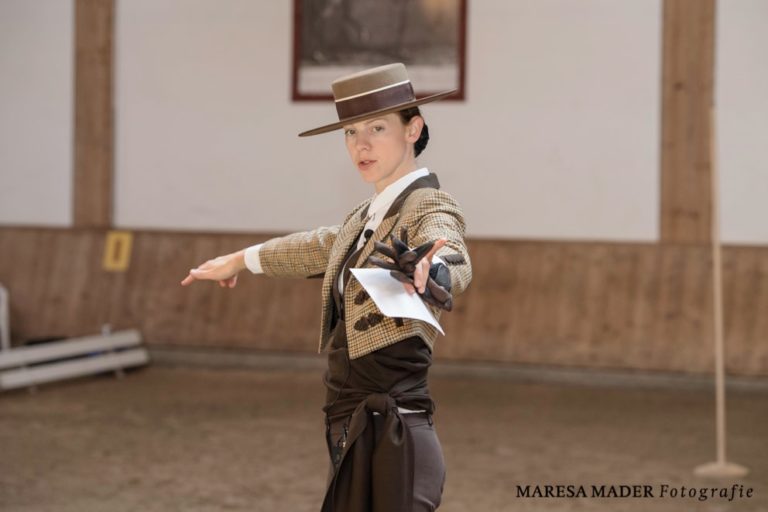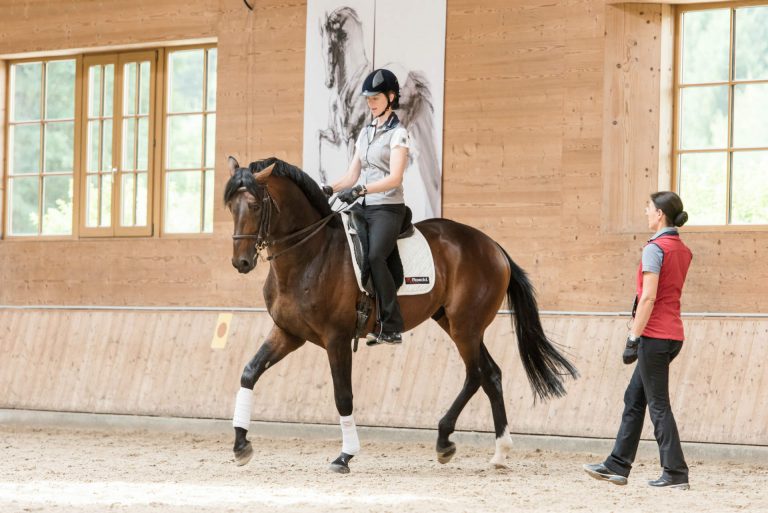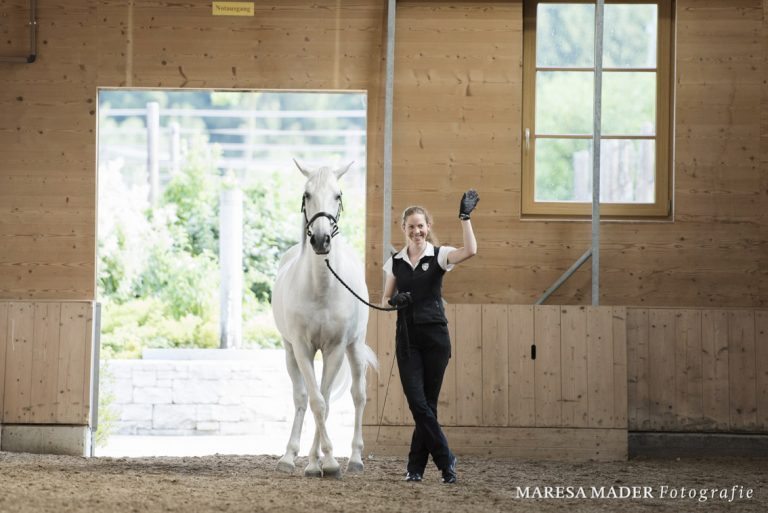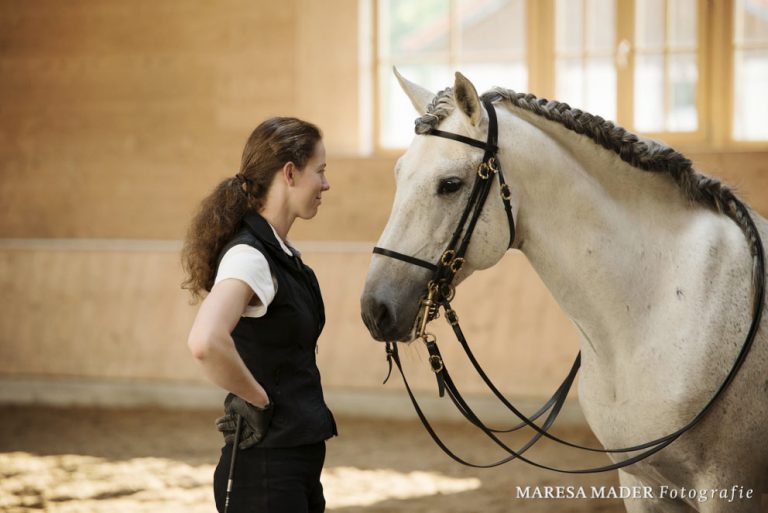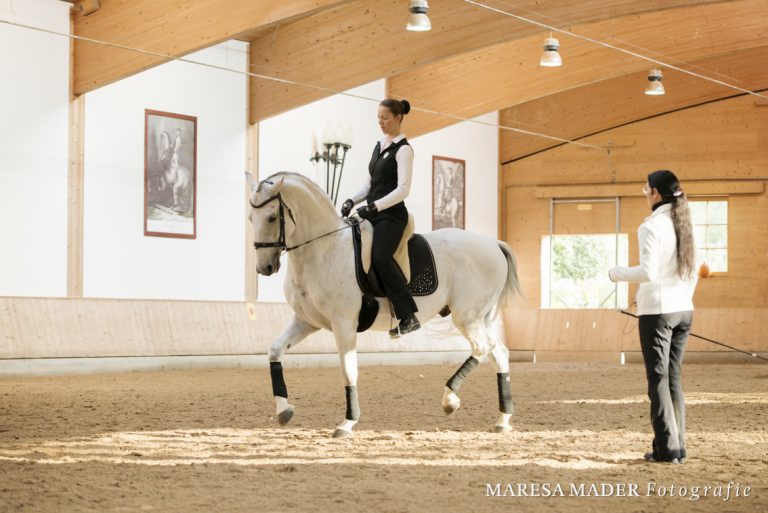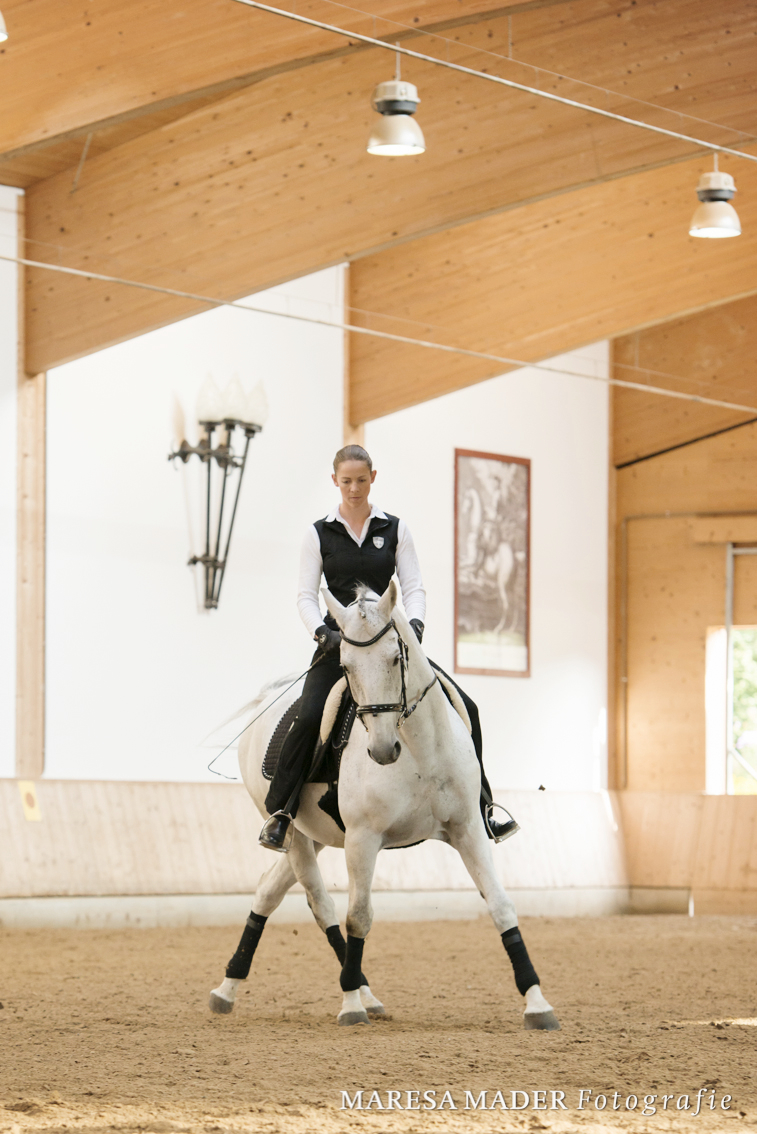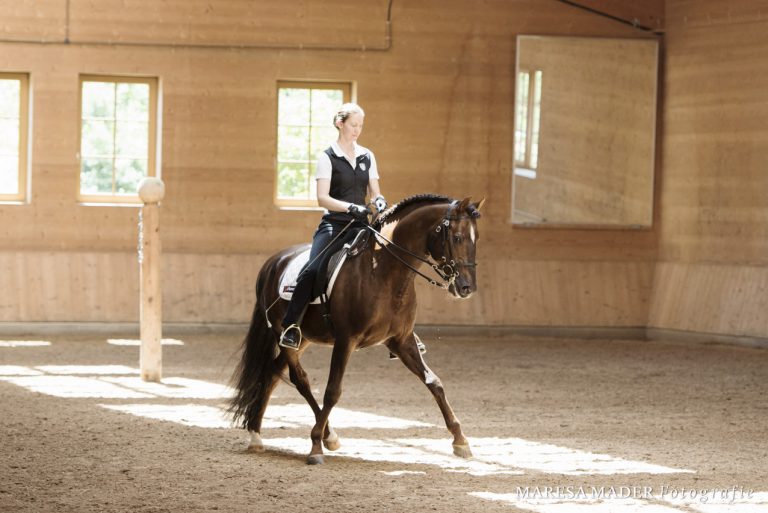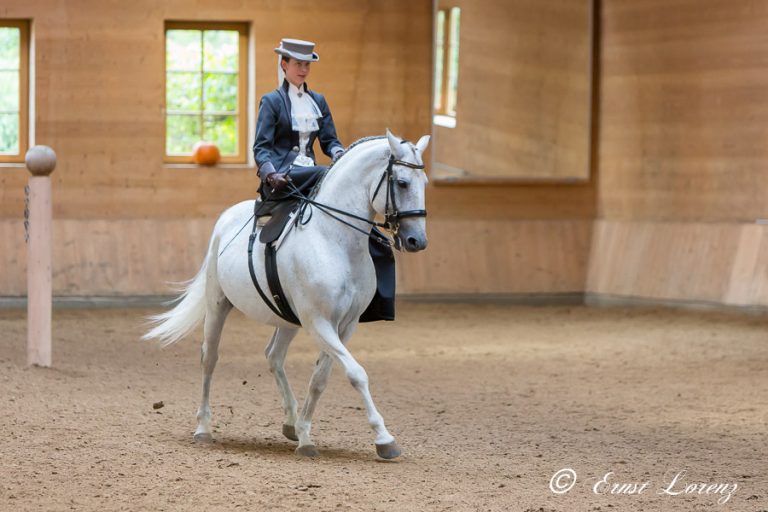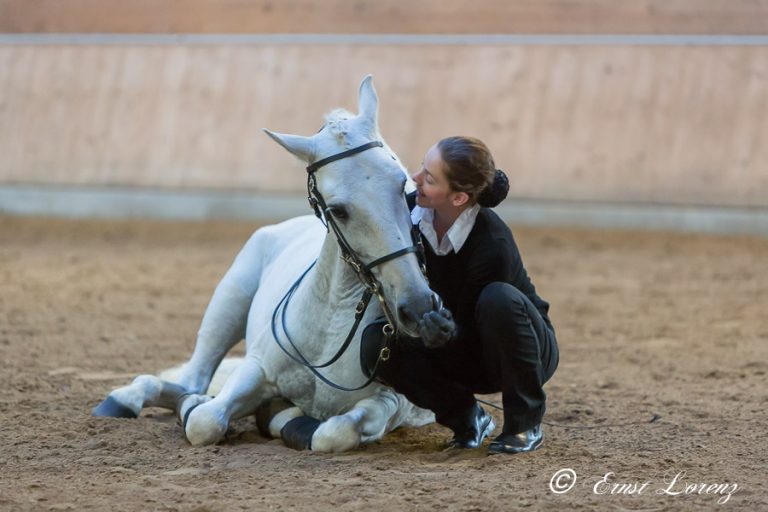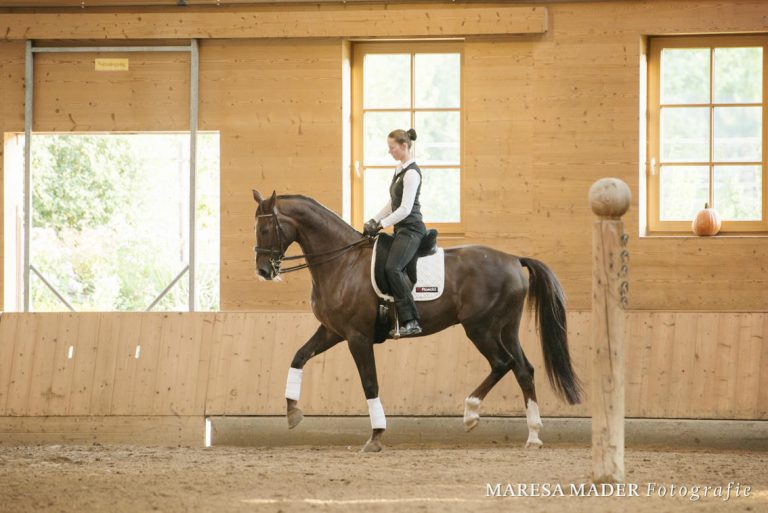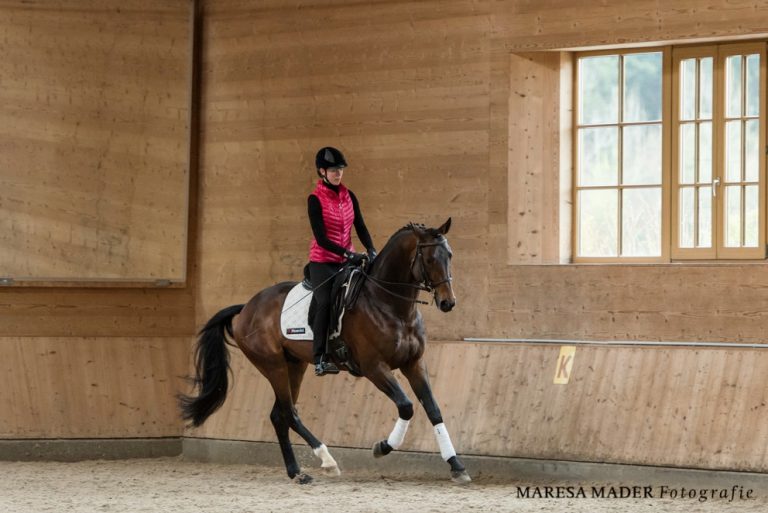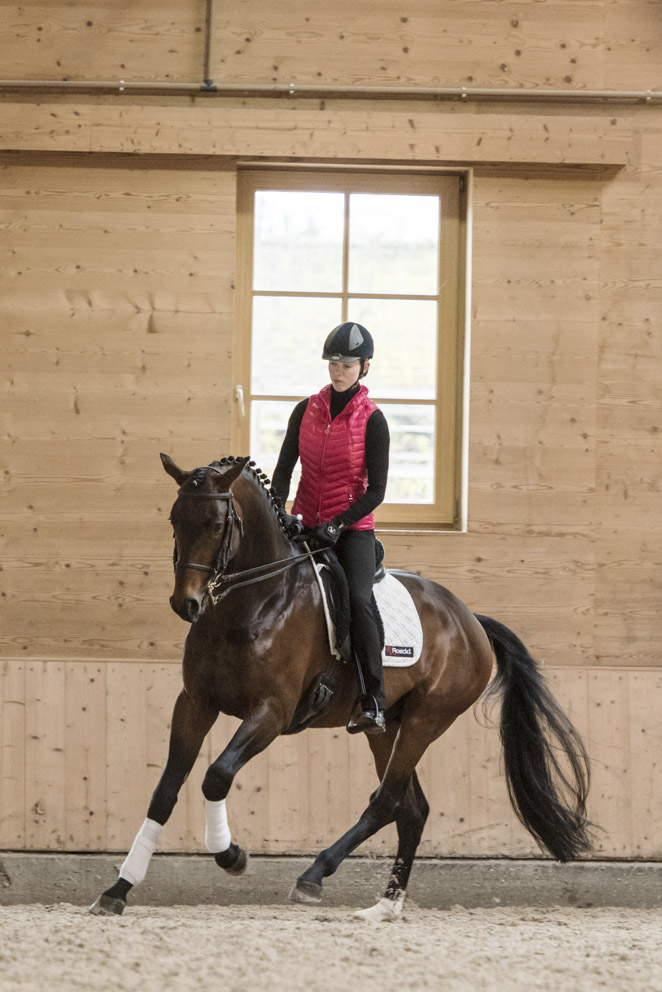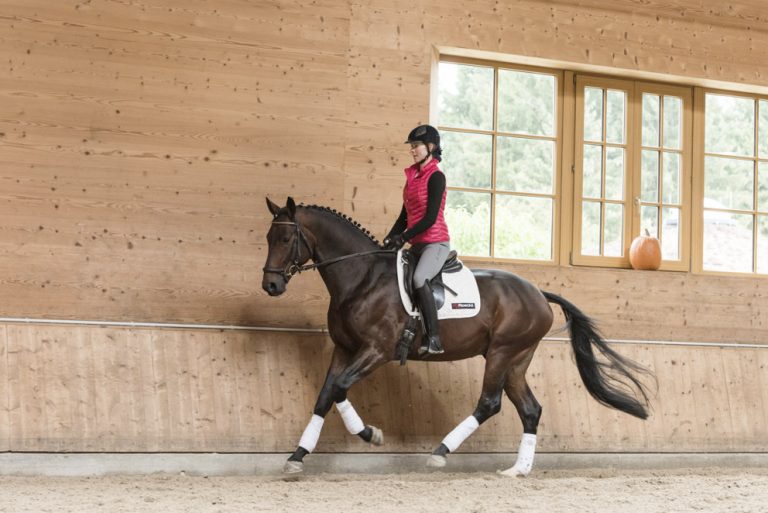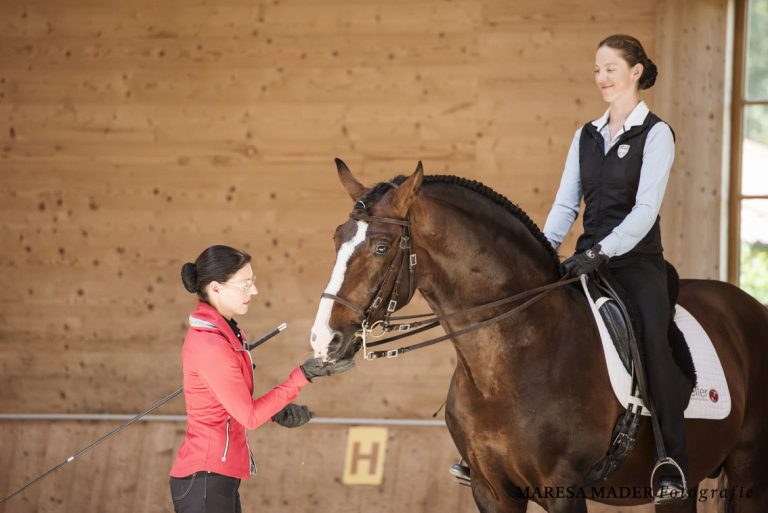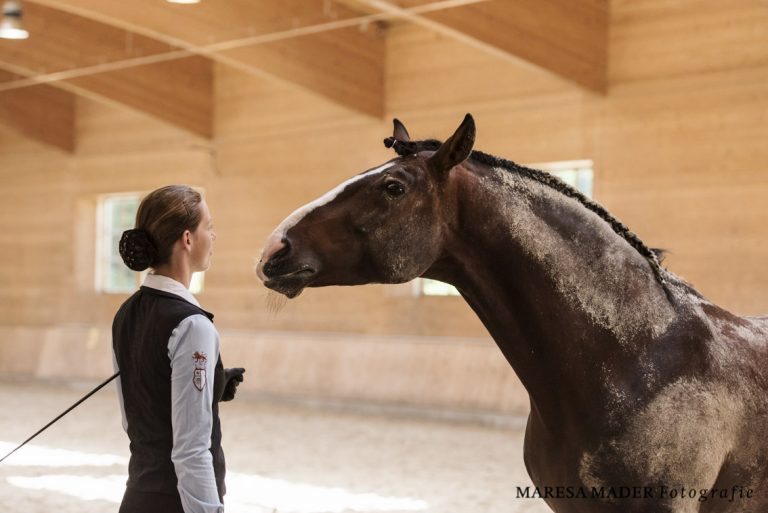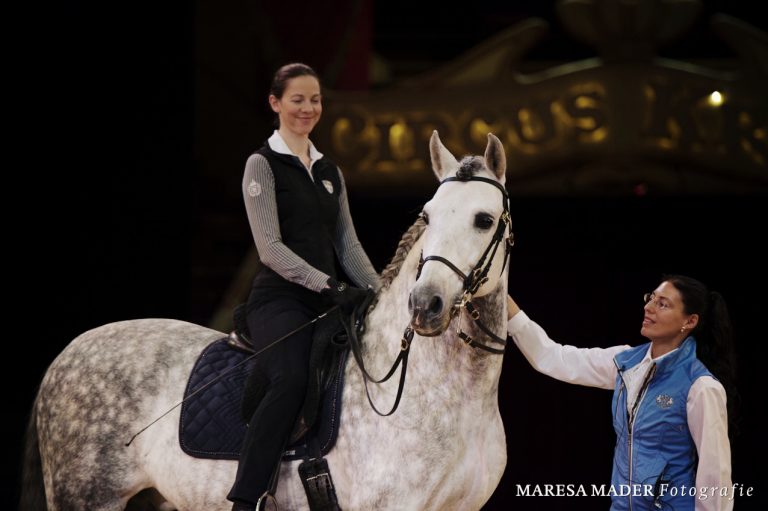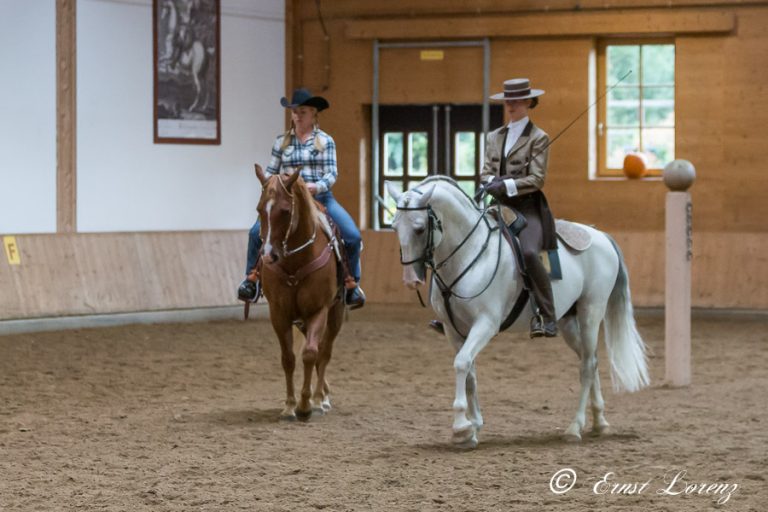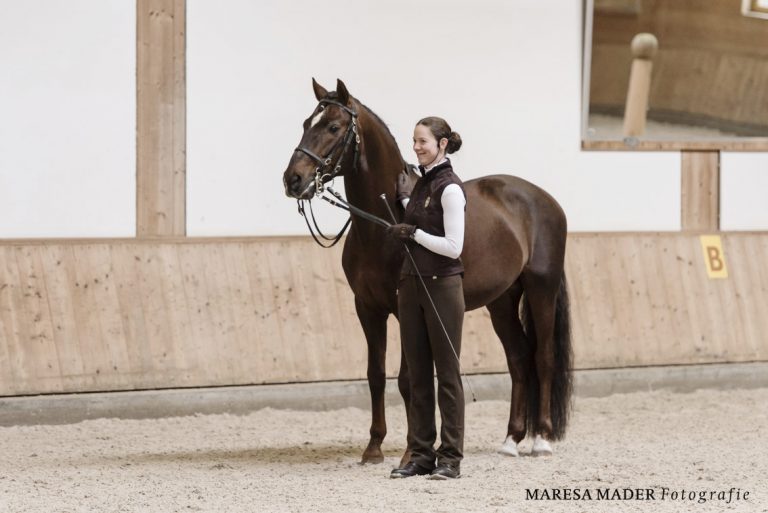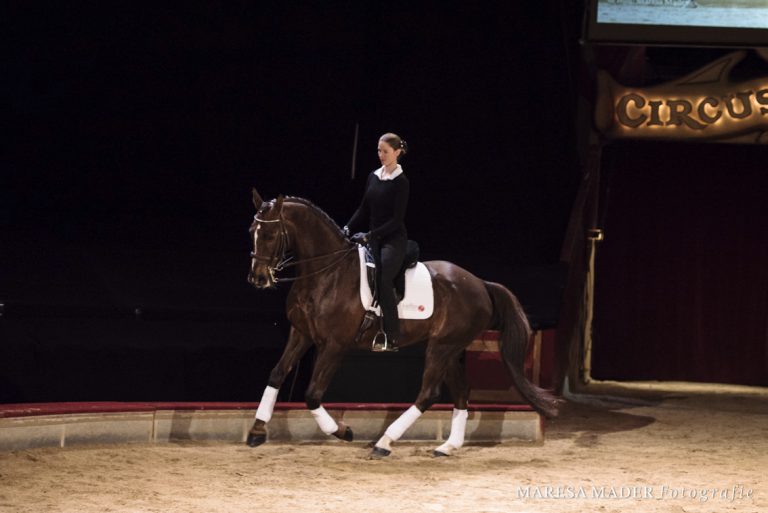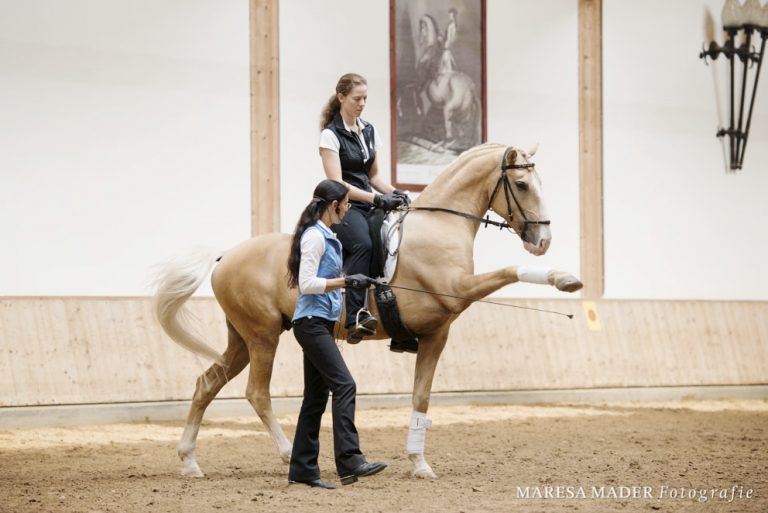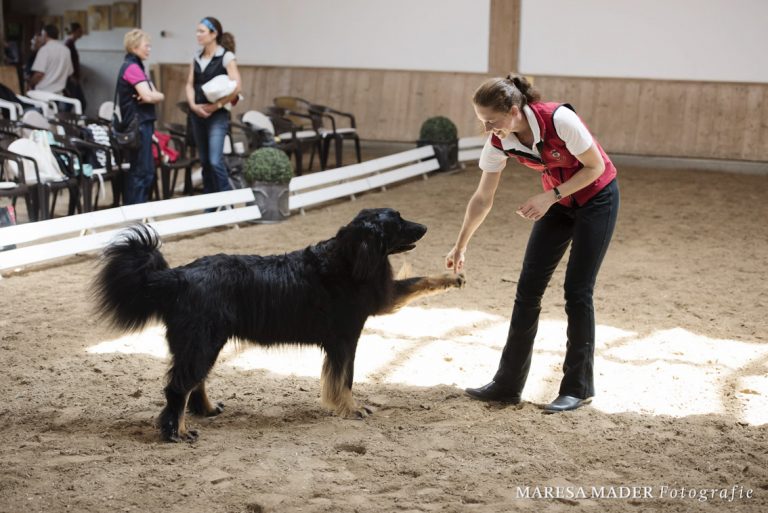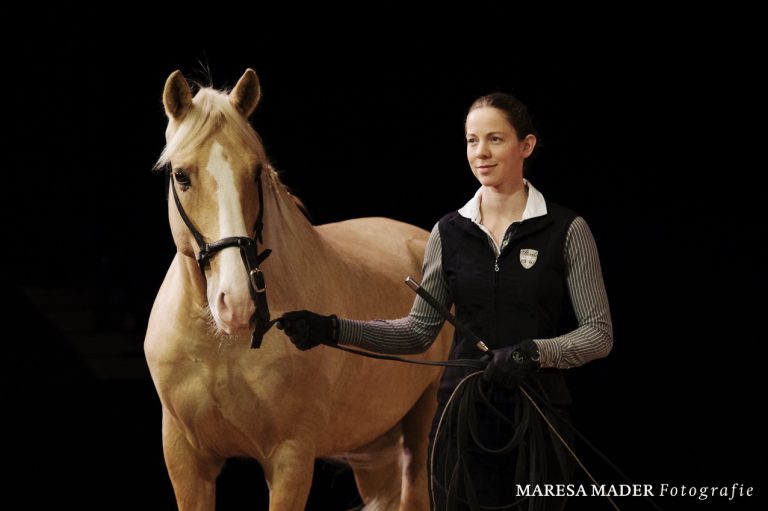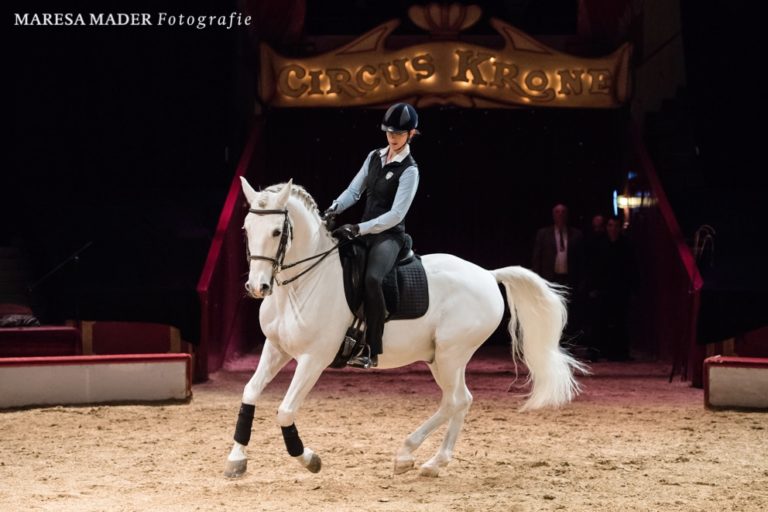Vera Munderloh
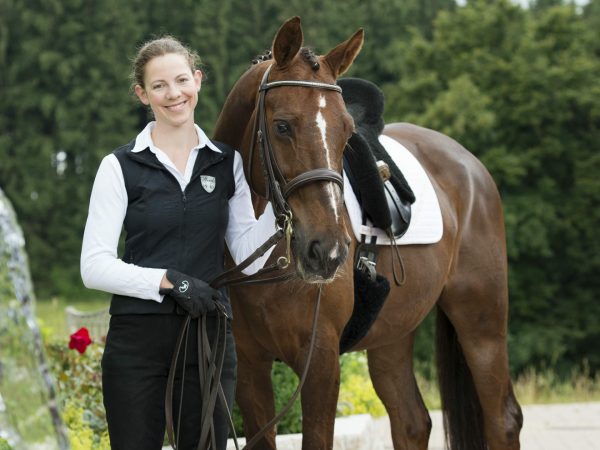
Vera Munderloh shares her unconditional passion about horses and their horse-friendly training according to classical principles with Anja Beran. Not only does she train horses and riders at Gut Rosenhof but she also holds clinics in Germany and abroad.
Vera Munderloh is characterized by:
EXPERIENCE | Vera Munderloh has worked in the team of Anja Beran since 2006 and is now the first rider and horse trainer at Gut Rosenhof.
ABILITY | In the course of this time Vera Munderloh has supported several horses up to the highest levels. Quite often her heart belongs to the „difficult“ cases, which she leads tobrilliant performances.
DIVERSIFIED SKILLS | Vera Munderloh sets value on diversion with her work: In addition to classical dressage she trains horses on the long reign, rides the side saddle and success-fully takes part in Working Equitation.
INTERNATIONALITY | Vera Munderloh speaks English fluently and holds clinics at home and abroad, like for example in Austria, Emirates, Norway, Switzerland, UK, USA
In interview with Vera Munderloh
Since 2006 Vera Munderloh has been working with Anja Beran. As the head rider, Vera is one of the protagonists at the equestrian training center at Gut Rosenhof
Dear Ms. Munderloh, how did you manage to come into contact with Classical Equestrianism when you were still a young girl?
I was fed up with riding aimlessly on unmotivated school horses. So for a while I just concentrated on hacking out. But somehow I wanted to do more. And subsequently I found my instructor.
You work with horses and are a vegetarian, your sister is a professional dog trainer – is a love of animals in your family‘s genes?
According to my grandmother, yes. She always says that I have inherited my love of horses from my grandfather – he was also mad about them. He used to work with horses in agriculture. His boss at the time always claimed that if my grandfather ever stopped coming to work, nobody else would be able to manage the horses, they were so focussed on him.
Riding in perfection – is that an achievable aim?
No! You can and must try just to do the best possible, and consistently improve everything. But you will never achieve true perfection. But that is what makes riding interesting, there is always room for improvement.
Do you have a favourite movement?
I used to find the flying change and passage most impressive. But meanwhile I don‘t really mind what I ride. It is just important for me to feel that the horse is light, supple and going straight. It makes me very happy, for example, when a horse does a successful halt out of a collected walk.
What type of horse do you particularly enjoy riding?
A motivated, fine horse which is nevertheless not too excitable, but has a clear head – that is my idea of an ideal horse. The horse’s breed is not relevant at all, as far as I am concerned.
What do you like most about your work as first professional rider here with Anja Beran.
The horses! The surroundings, being able to work in a concentrated way in calm surroundings. And, above all, the fact that I have the possibility to continue learning as well as to apply my knowledge and ability every day in a new way.
Do you ever have days when you feel you would rather have a more “normal” job?
I have no idea what kind of a job that could be. Every job has advantages and disadvantages. But I can‘t imagine that there is anything I would enjoy more than my current profession!
Meanwhile you are also in great demand as a trainer at international level: In which country did you enjoy working most, and where would you like to return to give another clinic?
I received a very warm welcome everywhere, there is no country which particularly stands out. But I find it a great honour to be invited to some distant country, it involves quite a considerable amount of effort for people. Of course there are other trainers who are geographically much closer – and the fact that they nevertheless ask me, of course, makes me feel really good!
What would be your advice to young riders who see you as an example?
Anyone who wants to reach the higher echelons of equestrianism must, above all, be prepared to learn. That means to accept criticism and have the urge to keep improving so that you make constant progress.
